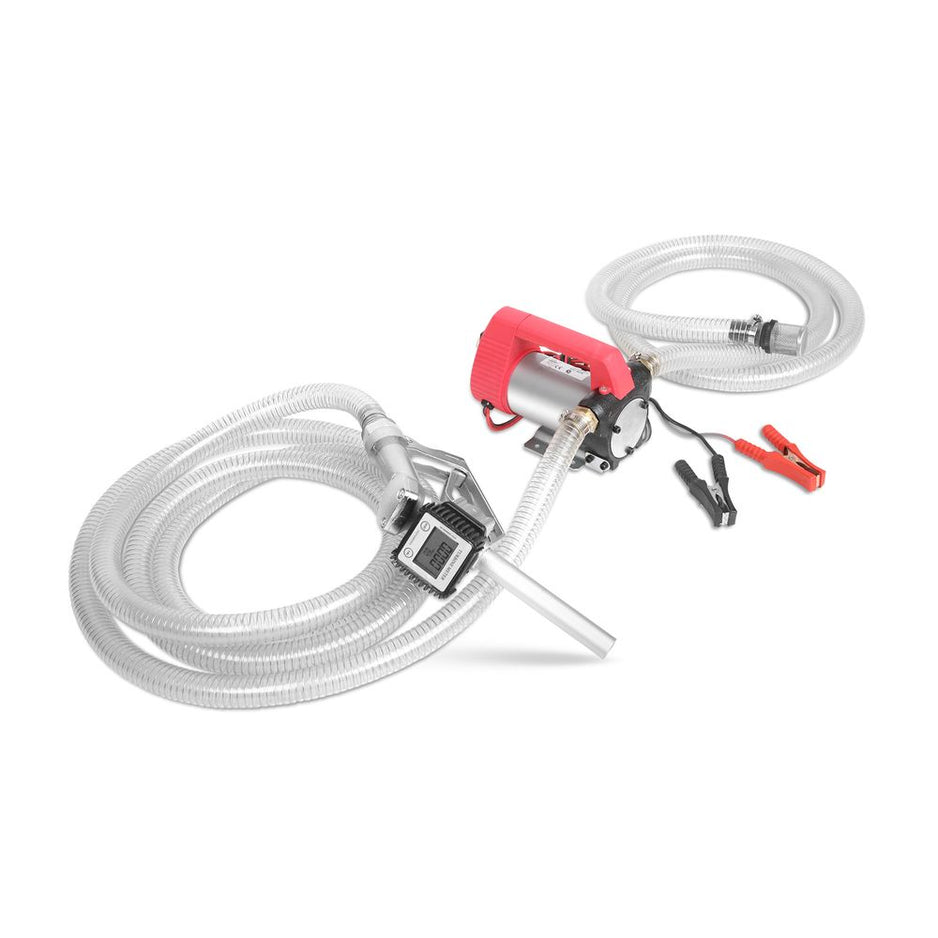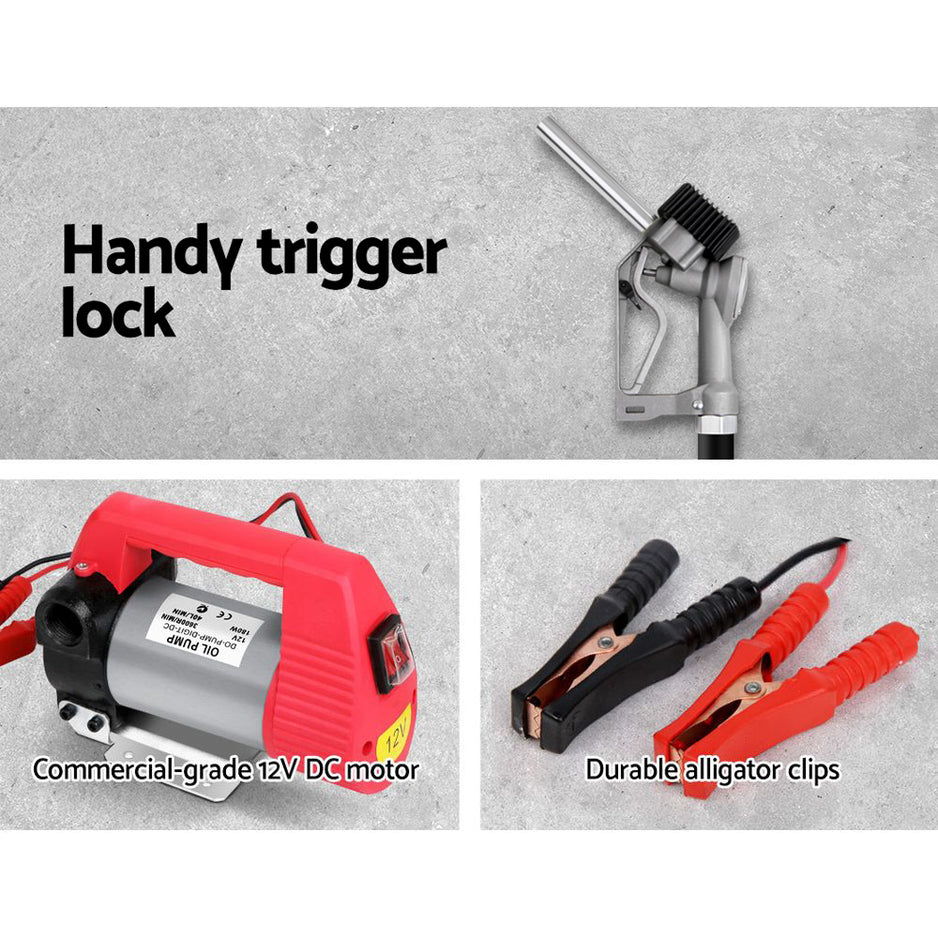sales@tecnotools.com.au
sales@tecnotools.com.au
Call us: 0433 734 100

Selecting the appropriate diesel transfer pump is a critical decision, especially when efficiency, reliability, and fuel safety are paramount. Whether you're a farmer, a construction professional, or a fleet manager, making an informed choice will significantly impact your operations. In this guide, we'll walk you through the key considerations to help you choose the perfect diesel transfer pump for your specific needs.

When it comes to transferring fuel, one of the crucial factors to consider is the volume that needs to be transferred. Assessing your requirements in terms of volume will help determine the appropriate pump flow rate for efficient and timely transfers. Whether you are dealing with small quantities or large volumes on a regular basis, understanding your fuel transfer needs will ensure you have the right equipment at hand.
In addition to volume, it is important to consider the frequency of transfers. How often do you need to transfer fuel? Is it a daily occurrence or more infrequent? This aspect will allow you to assess whether a high-capacity pump is necessary for frequent transfers or if a smaller pump can suffice for occasional use. By evaluating the frequency, you can make an informed decision on which pump specifications best match your needs.
Apart from considering volume and frequency, another essential factor is the distance over which you need to transfer fuel. Understanding this distance will help determine not only the size of pipe required but also evaluate power specifications needed for efficient operations across various distances. By assessing these aspects upfront, potential complications such as insufficient flow rate or inadequate power can be avoided.
By taking into account these three key factors - volume, frequency, and distance - you can make informed decisions when selecting a fuel transfer pump that meets your specific requirements. These considerations ensure optimal performance and efficiency during your operation while minimizing any potential setbacks due to inaccurate assessments. Taking time for meticulous evaluation before purchasing or using a pump ultimately saves time and resources in the long run
Diesel transfer pumps come in various types, each suited to specific applications:
When it comes to choosing a pump, it's essential to consider your available power sources and mobility needs. Electric pumps may appear to be the most convenient option, but they do come with a requirement for a power source. This makes them ideal for fixed fuel transfer locations where a reliable electricity supply is readily available. However, if you find yourself in fieldwork or remote areas without access to power, battery operated pumps or some diaphragm pumps can become your saviour.

Manual pumps offer remarkable portability and allow for excellent adaptability in various environments. They eliminate the need for an external power source altogether and provide you with the freedom to transfer liquids wherever you go. Similarly, some diaphragm pumps operate using compressed air or gas instead of electricity, making them perfect for ventures off-grid or in remote locations where traditional outlets are scarce.
Opting for a portable pump not only ensures independence from electricity but also enhances efficiency in challenging circumstances. When working on-site or dealing with emergency situations, having a pump that doesn't rely on an external power source can significantly expedite tasks and give you peace of mind regardless of where you find yourself.
So before making your pump selection, take inventory of your available power sources and evaluate your mobility needs carefully. Consider whether an electric pump's convenience outweighs its dependence on stationary locations versus the freedom provided by manual or diaphragm options that can function flawlessly even in off-grid settings. By choosing wisely based on these factors, you'll ensure efficient fuel transfer no matter
When it comes to choosing a pump for diesel fuel, compatibility is key. Not all pumps are designed to handle every type of fuel or additive, and using the wrong pump can result in damage and costly repairs. To ensure safety and avoid unnecessary expenses, it's crucial to prioritize compatibility with diesel fuel.
In addition to compatibility, investing in a pump with safety features is essential. One such feature to look for is thermal overload protection. This mechanism protects the pump from overheating by automatically shutting it off if it starts to exceed safe temperatures. This not only prevents damage to the pump but also reduces the risk of fire or other dangerous situations.
Automatic shut-off mechanisms are another important safety feature for diesel fuel pumps. These mechanisms sense when the tank is full and automatically stop pumping, preventing spills and leaks that could lead to environmental contamination or even explosions.
Choosing a high-quality diesel fuel pump that is compatible with your specific needs and includes these safety features will provide peace of mind knowing that you're prioritizing both functionality and safety in your purchasing decision. Don't leave it up to chance - make an informed choice when selecting your diesel fuel pump for optimal performance without compromising on safety!
Doing your research beforehand can save you time, money, and headaches in the long run. One of the best ways to gather useful information is by reading product reviews. These reviews not only provide valuable insights into the performance and durability of different pumps but also highlight any potential issues or shortcomings. By paying attention to both positive and negative reviews, you can get a well-rounded understanding of what to expect from various brands and models.
In addition to reading product reviews, seeking recommendations from industry peers is another effective way to make an informed decision. Fellow professionals who have experience using diesel transfer pumps can offer firsthand insights into which pumps are reliable, efficient, and suitable for specific applications. They may even be able to share tips or advice based on their own experiences with different models. Don't be afraid to reach out to others in your industry; their expertise could prove invaluable when making such an important purchase.
Lastly, consulting with diesel transfer pump suppliers is another wise step before locking in your decision. Suppliers who specialize in diesel transfer pumps are well-versed in the different options available on the market and can provide expert guidance tailored specifically towards your needs. They understand the technical specifications and requirements necessary for various industries or applications and can help you select a pump that will meet these standards effectively. Additionally, suppliers often have access to up-to-date information about new additions or advancements in pump technology that may impact your decision-making process.
It is crucial to consider your budget when purchasing a diesel transfer pump. With the market offering a wide range of prices, it can be tempting to opt for the cheapest option available. However, it is important to remember that quality comes at a price. Investing in a cheap pump may lead to frequent breakdowns and maintenance costs down the line.
On the other hand, going for the most expensive option does not necessarily guarantee superior performance. It is essential to assess your specific needs and find a balance between cost and quality that suits your requirements. This means thoroughly researching different brands and models, reading customer reviews, and comparing prices before making a final decision.
When considering your budget for a diesel transfer pump, take into account any additional equipment or accessories you may need. For instance, if you require fittings or hoses to connect the pump to tanks or machinery, factor in their costs as well. By carefully assessing your budget and investing in a pump that offers optimal value for money based on your unique needs, you can ensure smooth operations without breaking the bank.
In conclusion, choosing the right diesel transfer pump for your needs is crucial in ensuring efficient and safe fuel transfer operations. It is important to consider factors such as flow rate, power source, and portability when making a decision. Additionally, understanding the specific requirements of your application and the regulations surrounding diesel fuel handling is essential in selecting the appropriate pump. By taking the time to research and evaluate different options, you can find a pump that meets your needs and helps you streamline your fuel transfer processes. So, whether you are a farmer looking for a portable pump for refuelling machinery or a construction company needing a high-volume solution for on-site fuelling, make sure to carefully assess your requirements before making a purchase.